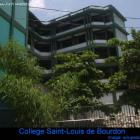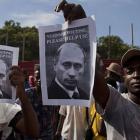ADVERTISEMENT
Photos
Jocelerme Privert and the Haitian Parliament
Jocelerme Privert Vs The Haitian Parliament. On 14 February 2016, the Haitian parliament elected Jocelerme Privert as the interim leader, the provisional President to lead the country until the next presidential polls. The Haitian lawmakers chose the country's former Senate chief Jocelerme Privert who would lead a caretaker government as the interim provisional president with missions to ease the tensions of the suspended elections and hold the overdue presidential election on April 24, 2016 and install a new President on May 14, 2016-- all within his 120-day tenure. However, Privert in spite of being an experienced politician and good administrator, could not organize the election as per his given mandate. He has told the press that he would publish a new election calendar by the end of May. He has also mentioned, political stability, proper infrastructure and arrangement of election funds are some of the prerequisites to hold a credible election.
Jocelerme Privert Health status
Is President Jocelerme Privert healthy?
On May 1, 2016, Jocelerme Privert (born 1 February 1953), the present provisional president of Haiti, could not travel to Jacmel as per earlier announcement to celebrate the Patronal feast of Saint Jacques and Philippe as well as the festival of agriculture and labor, neither he could meet personalities from various sectors as per his earlier appointments as part of the Feast of Agriculture and Labor. From the Communication office of the Presidency, it was learned that, he could not make the trip due to health issues. However, the President Privert sent his good wishes for a Happy Feast of Agriculture and Labor Day to all Haitian workers, to all sectors of national life, and to all Haitians in general.
The Superior Court of Auditors and Administrative Disputes - 2014
Here is a picture of the members of the Superior Court of Auditors and Administrative Disputes - 2014.
In September, 2014, the Superior Court of Auditors and Administrative Disputes (CSC/CA) signed a Memorandum of Understanding with United Nations Development Program (UNDP) for implementing steps to strengthen its capacity and scope of operation. As per the plan, the UNDP would provide its expertise to evaluate the efficiency of CSC/CA's institutional organism and provide mechanisms for improvement of administrative and financial control. The Superior Court of Auditors and Administrative Disputes (CSC/CA) is a capital institution responsible for strengthening of good governance, oversee the actions and management of public administration and public funds, and assist the parliament and the executive in the control of enforcement of laws and regulations regarding the budget and Public accounts.
A community Latrine in Haiti
Here is a picture of a community latrines in rural Haiti to meet increasing sanitation needs.
As the cholera and other waterborne diseases in Haiti continue, immense outmigration from Port-au-Prince has further increased the need for improved sanitation facilities in the rural areas. In some villages, the populations doubled overnight. In rural areas, installation of hygienic community latrines would provide families better access to sanitation and at the same time, it can play a crucial role in diarrhea prevention. Diarrhea is the second leading cause of death among children under age 5. Traditionally, people are used to going to the field. Open defecation is considered a normal part of life and they hate pit latrines. Understanding their preference and changing peoples' habits towards a hygienic life should be the main concern in maintaining a clean environment. Moreover, it will reduce the spread of the disease and keep the drinking water sources clean. Some organizations like Lambi Fund of Haiti, The Water Institute from Gillings School of Global Public Health, Carolina, International Federation of Red Cross and Red Crescent Societies (IFRC), Medical Missionaries and Hopital Albert Schweitzer are working on the issues relating to community-led total sanitation (CLTS) in Haiti.
Jean Michel Hilaire, Head of gang "Haute tension", arrested in Petit-Goâve
Here is a picture of Jean Michel Hilaire, Head of gang "Haute tension" who was arrested in Petit-Goâve.
On Monday, May 2, 2016, Jean Michel Hilaire, the head of the dreaded gang "High Voltage" was arrested along with a dozen of his gang members by Jacques Ader, the Commissioner police of Petit-Goâve. Jean Michel was accused of many crimes and misdemeanors and was on the run for last 8 months. The gang was involved in acts of vandalism, armed robbery, rape and blocking the National road # 2. The gang was based in the 11th communal section of Petit-Goâve. The arrest operation was carried smoothly. The Commissioner with another police officer disguised themselves as doctors and approached the criminal without arousing suspicion and arrested him peacefully without any violence. Jean Michel Hilaire was presented to the police station of Petit-Goâve on Monday and he willfully agreed to cooperate with the police by denouncing his other gang members. Some of his gang members were arrested in last March. The population of Petit-Goâve was pleased with his arrest.
Little Haiti Cultural Center and Manager Sandy Dorsainvil
Here is a picture of Little haiti Cultural Center Manager Sandy Dorsainvil.
Sandy Dorsainvil, the manager of Miami's Little Haiti Cultural Center was abruptly fired on Monday, April 4, 2016 without any explanation. Her supporters said she was blindsided. Her removal caused an uproar among her supporters and the Little Haiti community came out in full force on Thursday, May 7th, to protest her illegal dismiss and demanded answers as to why their beloved community leader was fired. She was very popular for her phenomenal contribution since November 2012 and she was fired without any reason. As per Sandy's statement, she was at the city facility at 212 NE 59th Terrace around 2 p.m. when two city employees showed up with a termination letter signed by City Manager Daniel Alfonso. She was not given any explanation or notice for expulsion, but was given few minutes time to clear her belongings from her office and leave. In a statement, the City Manager Daniel Alfonso simply described her firing as an "ongoing review" and declined for detail discussion. Under her tenure, the center hosted art and educational programs and regular community gatherings and celebrations. Sandy was working with the Miami Foundation to establish an endowment for the center. She used to oversee the Caribbean Market Place which is a replica of the Iron Market in Port-au-Prince and side by side, she worked with the Rhythm Foundation to pull off one of the City's best block party/festivals, Big Night in Little Haiti. Her supporters packed the commission chambers on Thursday, demanding her reinstatement.
Sonson La Familia and Renel Lerécif
Here is a picture of gang leaders Sonson La Familia and Renel Lerécif.
Woodly Ethéard alias Sonson Lafamilia and his accomplice Renel Lecref, are two criminal leaders of the Galil gang. They were involved in innumerous cases of money laundering, murder, drug trafficking, kidnapping, false imprisonment against claims of ransom, and many other criminal conspiracies. They two jointly worth an unaccounted annual valuation of $44 million. These two criminals were booked and arrested several times, but every time, they were released with questionable legal orders. The Galil gang has 15 cases of kidnapping and forcible confinement to its credit and collected US$ 1,489,500 as per court records. In a six-year period, the gang abducted 17 people. Woodly Ethéard is a former music promoter and a friend of former president Michel Martelly.
Roro Nelson blocking Ruelle Nazon to assault 6 University students Quiskeya
Here is a picture of Roro Nelson at Ruelle Nazon. June, 2014 - Roro Nelson close friend of former Hasitian president Michel Martelly, blocking Ruelle Nazon to assault 6 university students Quiskeya
In June 2014, Roro Nelson, a close associate and Adviser to former Haitian President Michel Martelly assaulted six medical students of the University Quisqueya who were on their way to the University for exam. The incident occurred at Ruelle Nazon, north of the capital, when the Nelson's Cadillac registered in the Dominican Republic (number G-201860) tried to overtake the students' car. Roro got annoyed as he was unable to pass through the traffic jam. He came out of his car accompanying a police officer and started beating the students. The students launched accusations against "Roro" Nelson, and a police officer, for having beaten them during the incident of road rage.
The Slaughterhouses of Croix-des-Bosales
Picture of a slaughterhouses in the metropolitan area of Port-auprince characterized by foul odors, scattering rubbish and pests of all kinds. These places for slaughter of "meat animals" operate outside of hygiene or safety standards.
La Saline slaughterhouse in Port-au-Prince is there since 1982. It is a blood-drenched patch of land near a site which was once used for trading slaves. Today, it is an open air abattoir that supplies meat to the city. Seeing animals being killed is one thing, but hearing the sound of animals about to be killed is quite different. If you haven't heard that before, it's quite cruel and pathetic. It happens every morning well before the dawn when people from different departments of the country come to slaughter their livestock, including goats, cattle, and pigs. For the local people who live here in the impoverished shanty houses, slaughtering animals is the only means to earn their daily breads. Every day, about 150 goats and 100 pigs are killed and the merchants pay a fee of 10 to 15 gourdes per animal to the slaughterhouse administration and the slaughterers, in turn, are rewarded with pieces of meat. The open killing ground smells of dead animals, smoke and burning trash. The stench produced from burning animal skins is very distinctive. Anyone buying animal elsewhere can get it killed here for 125 gourdes. He can pay a man less than a dollar to push the carcass in a wheel barrow to the other side of the market where the animal could be sold by weight. There is no proper infrastructure and the state authority, knowing the fact that this is one of the main sources of meat to the city, prefers to keep their eyes closed.
Michel Brunache as Minister of Justice in Haiti
Here is Michel Brunache, Minister of Justice in Haiti.
Mr. Michel Pierre Brunache (born April 13, 1971) was appointed as the Minister of Justice & Public Safety (December 2011 - May 2012) by replacing Josué Pierre-Louis under the presidency of former President Martelly. Thereafter, he served as the Special Advisor to the Prime Minister of Haiti on Foreign and Political affairs and Rules of Law. Earlier to that, he had served as the Chief of Cabinet of the President of the Republic under provisional president Boniface Alexandre (March 2004 - May 2006). Mr. Brunache completed his law graduation from the Haiti State University (1995), and degree in Human Rights from Université de Fribourg (Suisse). He is a member of the Bar Association of Port-au-Prince. He is well conversant in French, Haitian Creole, English.. His practice area covers Civil Law, Constitutional Justice and Commercial Law. On June 26, 2015, in a talk facilitated by Venezuela, then Haitian Minister of Justice Michel Brunache exposed the agreement between Martelly administration and the Dominican authority that the Dominicans of Haitians descent, living in the D.R since 1928 would be degraded to second-class citizenship in the D.R. in an order to resolve the crisis of stateless status of hundreds of thousands Haitians of Dominican descents who are facing the threat of forced expulsion from the Dominican Republic.

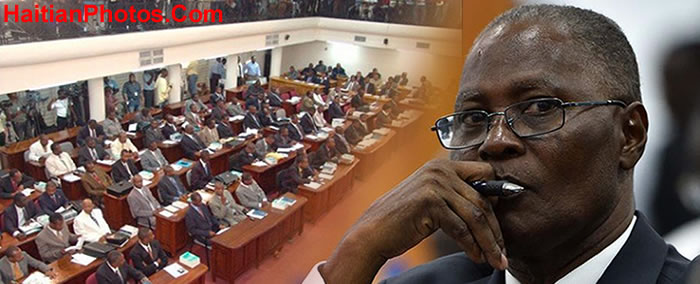


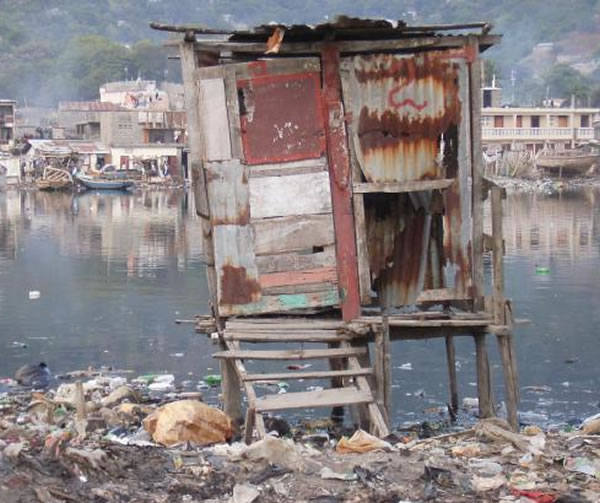
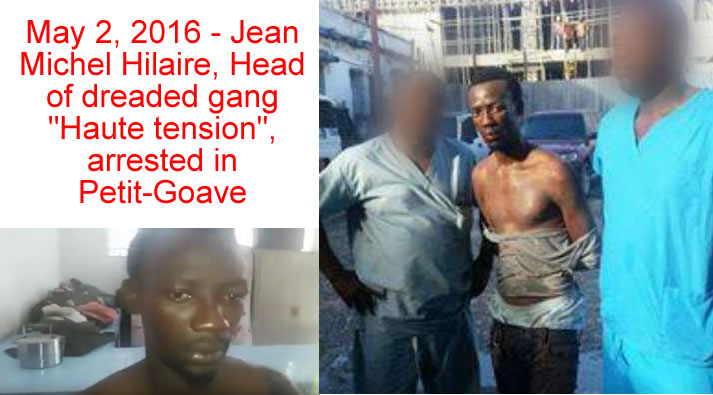

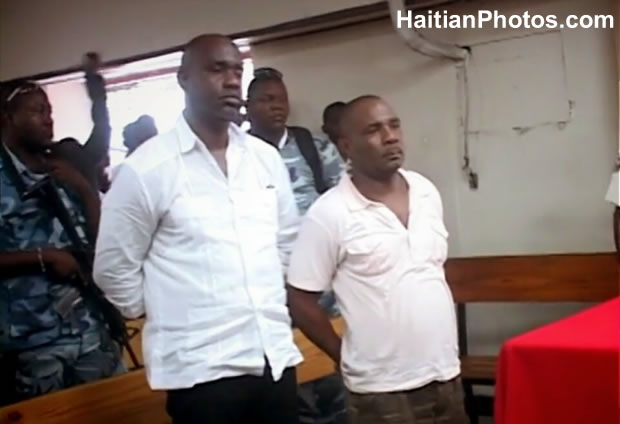

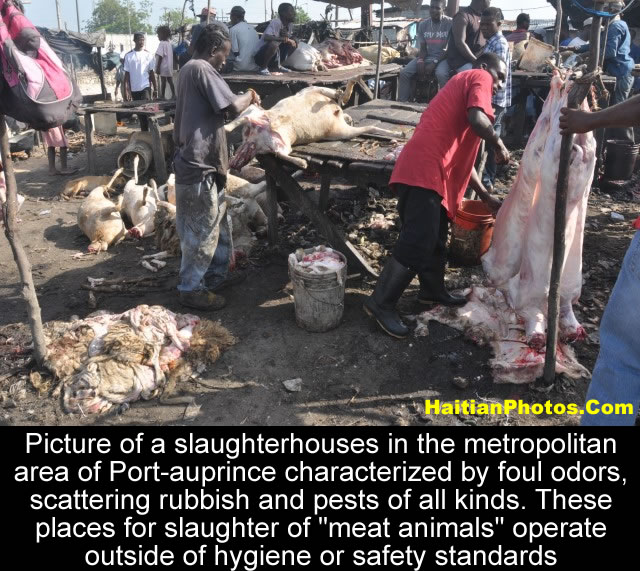
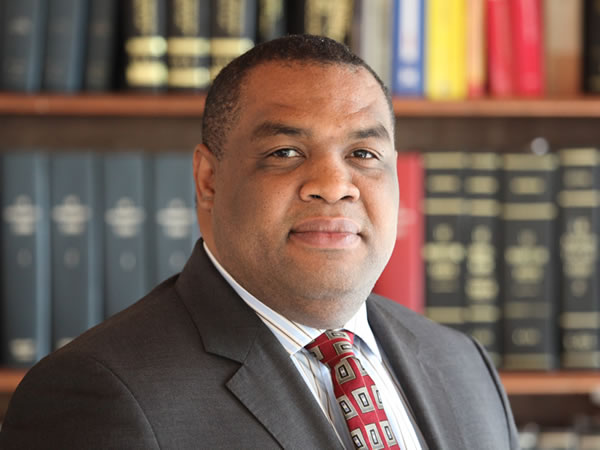
 The Gardens of the MUPANAH
The Gardens of the MUPANAH  Hilton Garden Inn in Port-au-Prince Louverture Airport
Hilton Garden Inn in Port-au-Prince Louverture Airport  Tourism In Haiti - Traditional Haitian Dance Performances
Tourism In Haiti - Traditional Haitian Dance Performances 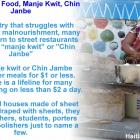 Haiti Street Food, manje kwit or Chin Janbe, for $1 or less
Haiti Street Food, manje kwit or Chin Janbe, for $1 or less  Philippe Vorbe entered world football Hall of Fame, CONCACAF
Philippe Vorbe entered world football Hall of Fame, CONCACAF  Paul Eugène Magloire, born in Quartier Morin
Paul Eugène Magloire, born in Quartier Morin  Haitians, the second largest black immigrant group in the US
Haitians, the second largest black immigrant group in the US  Jovenel Moïse nominated Jean Henry Céant as prime minister of...
Jovenel Moïse nominated Jean Henry Céant as prime minister of... 
